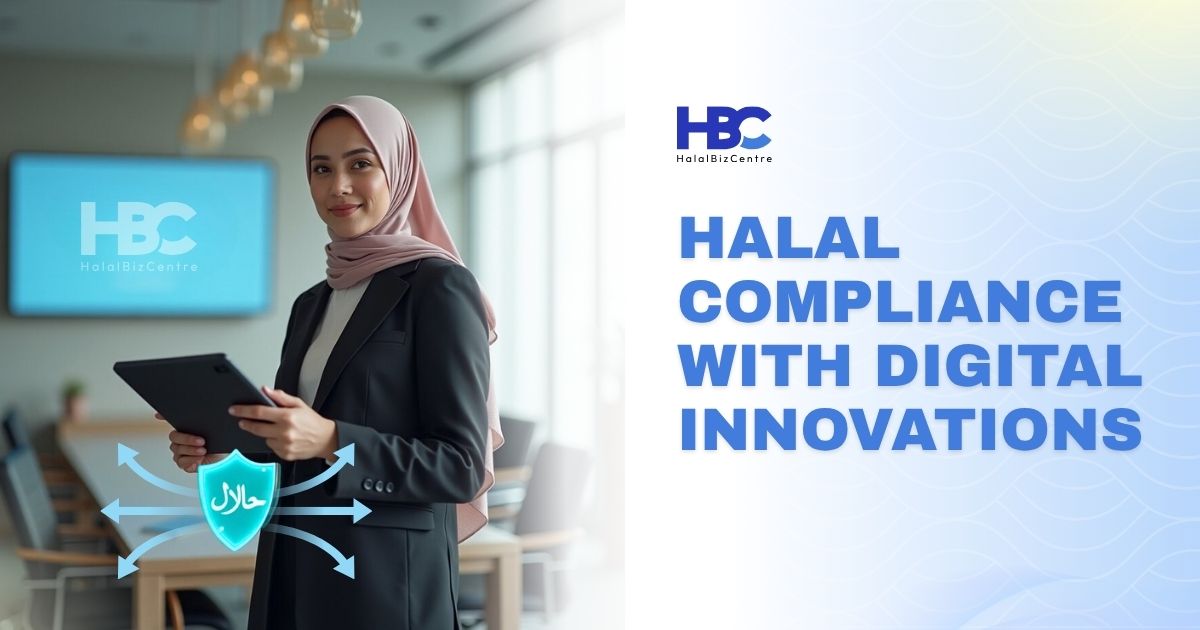Halal Compliance With Digital Innovations

In the ever-expanding halal industry, obtaining and maintaining a halal certificate is not just a regulatory requirement—it is the very foundation of trust, credibility, and sustainability in the halal industry. Consumers and businesses alike rely on this halal certification as proof of adherence to stringent halal standards, ensuring that the products they consume and distribute are genuinely halal-compliant. However, the journey toward achieving and sustaining halal certification is anything but easy.
The Grueling Battle to Get Halal-Certified
For any business seeking to penetrate the halal market, obtaining halal certification is a significant milestone. But the reality is, getting halal-certified is not an easy feat. Companies must undergo a meticulous evaluation process that involves:
- A thorough assessment of raw materials.
- Verifying the supply chain for halal compliance.
- Ensuring dedicated/segregated halal production lines to prevent cross-contamination.
- Meeting the documentation and procedural requirements of halal certification bodies.
The process demands a high level of discipline, transparency, and traceability, which many companies struggle to meet. It is not merely about ticking boxes but demonstrating an unwavering commitment to halal integrity. The hurdles do not end once the halal certificate is obtained—post-certification halal compliance is an even greater challenge.
The Daily Struggle to Keep Halal Compliance Intact
Once a company achieves halal certification, maintaining halal compliance becomes an ongoing challenge. Many companies assume that obtaining halal certification is the hardest part, only to realize that post-certification halal compliance is where businesses stumble. The key challenges include:
- Strict adherence to halal audit requirements – Failure to conduct internal halal audits exposes companies to non-halal compliance risks.
- Halal receiving duties – Many companies lack proper verification processes for incoming halal ingredients, putting halal traceability at risk.
- Monitoring supplier compliance – Ingredients may be replaced, reformulated, or sourced from new suppliers who may not be meet halal-certification requirements
- Unintentional violations – Staff may inadvertently mix halal and non-halal items due to lack of training or absence of standardized procedures.
If a halal-certified company fails to meet compliance standards, they risk suspension or revocation of their halal certificate—a situation that could cripple business operations. The financial and reputational damage caused by losing a halal certificate is severe, yet many companies do not have the proper tools to self-monitor and uphold strict halal compliance within their facilities.
The Costly Nightmare of Halal Certificate Renewal—Are You Fully Prepared?
As daunting as the initial halal certification process is, halal renewal is often the biggest challenge. Many companies operate under the false assumption that renewal is a straightforward process—until they realize how unprepared they are when the time comes. Without proper planning, the halal renewal process can become a crisis.
The most common mistake halal-certified companies make is waiting until the last minute to start their renewal application. Halal certification bodies require renewal applicants to be well prepared in advance, with all halal supporting documents and other relevant updated as well as compliance of conducting halal internal audit. Companies that fail to meet these compliances may experience a lapse in halal certification, renewed on-time, which has the following serious implications:
- Business disruptions – Many retailers and food service providers will not accept or distribute products without a valid updated halal certificate
- Loss of revenue – Without a valid halal certificate, businesses may lose key contracts and customers.
- Supply chain breakdown – Companies risk losing trusted halal suppliers, affecting product availability and manufacturing continuity.
- Damaged reputation – Consumers and B2B partners may lose trust in a company that fails to renew its halal certification on time.
For businesses that rely heavily on halal markets, failing to renew their halal certificate before the expiry date can be a painful and costly experience. Despite this, many companies are now struggling with last-minute renewal chaos, losing thousands in revenue due to unexpected halal certification lapses, suspensions, or revocations. The reality is, failure to renew on time means lost customers, supply chain disruptions, and a tarnished reputation.
The Hidden Risks: Why Poor Halal Monitoring is Costing Businesses Thousands
One of the primary reasons companies struggle with halal compliance and renewal is the lack of proper internal monitoring tools. Many companies fail to establish effective mechanisms for conducting internal halal audits and halal receiving duties, leading to:
- Halal traceability Issues – Companies struggle to track whether ingredients received from suppliers truly match their respective halal certificates.
- Lack of documentation discipline – Many businesses do not keep detailed halal audit records, making it difficult to present halal compliance evidence during renewal.
- Limited staff awareness – Employees often lack training or competency of how critical halal compliance is, leading to errors that could jeopardize halal certification.
Without a structured approach to halal monitoring, businesses are left vulnerable to halal compliance risks. When the hala renewal period arrives, they find themselves overwhelmed, unable to meet the necessary requirements, and at risk of losing their halal status.
The Halal Business Crisis: Desperately Seeking a Lifeline
The struggles of halal-certified companies are happening right now—they are urgent and financially devastating experienced by businesses that find themselves lost in the complex halal certification landscape. Picture a company that has spent months obtaining its first halal certificate, excited to tap into the growing halal market. But within a year, they are faced with:
- Unannounced audits that they are unprepared for.
- Compliance gaps that put them at risk of halal certification revocation.
- The pressure of renewing their halal certificate but lacking the proper tools, resources and guidance to manage the process.
This company is desperate for a solution—someone to guide them through their halal business journey. They need a reliable halal advisory service, a structured system to monitor halal compliance, and digital tools to ensure they stay ahead of halal audit and renewal deadlines.
The Path Forward: A Smarter Approach to Halal Compliance
The reality is, maintaining halal certification is not just about meeting the basic halal requirements—it is about establishing a long-term commitment to halal integrity. Companies that succeed in the halal industry are those that adopt a proactive approach by:
- Implementing internal halal audit systems to monitor accurate, evidence-based halal compliance continuously.
- Ensuring halal receiving duties are carried out with precision and proper halal traceability.
- Using digital tools to manage, trace in seconds and update halal certificates with an automated halal certificate expiry alert and reminder system
- Have an on-demand halal advisory channel for expert halal advisory and guidance to navigate complex halal certification and renewal challenges.
Halal certification is more than just a halal business requirement—it is the ‘lifeline of your continuity in the halal business landscape’. Hence, businesses must recognize that it is a lifelong responsibility, not a one-time achievement. Companies that take halal compliance seriously—through proper halal digital management and audit tools, training, and halal expert guidance—will not only sustain their halal certification but thrive in halal markets with complete halal confidence while also offering unwaverig halal trust to their customers.
© Copyright Design by Neu Entity


